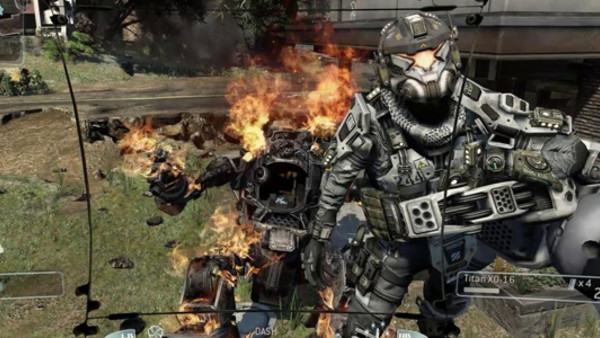8 Video Games You Didn't Realise Broke The Industry
4. Titanfall - Kickstarted The Trend Of Studios Dropping FPS Campaigns

It pains me to dunk on Respawn when they're one of the best studios around, but it's a sad reality that Titanfall kickstarted the trend where studios forgo single-player campaigns in their first-person shooters.
First off, there's nothing wrong with multiplayer-only titles. In fact, for a franchise like Titanfall, the first game not having single-player actually made a degree of sense. Respawn were a new studio and they were aiming to provide a true competitor to heavyweight franchises like Halo and Call of Duty, two games famed more-so - debatably - for their multiplayer than their single-player. They even returned to Titanfall a few years later to deliver one of the best FPS campaigns in the sequel, so they're clearly not at fault here.
The issue, really, is that publishers looked at Titanfall and later Overwatch, and believed they could get away with releasing an FPS without a single-player altogether, even in franchises with pre-established and well-liked single-player story-modes. 2015's Star Wars Battlefront reboot was the first notable offender, being sold at full-price by EA despite possessing a dearth of content at launch and advertising a $40 season pass for players to receive all the post-release DLC.
Following in Battlefront's footsteps, Activision released 2018's Black Ops 4 without a campaign too, opting to implement a Battle Royale mode at its expense.
Even if both COD and Battlefront brought back single-player modes in subsequent entries, I don't think anyone can deny that FPS campaigns have declined in value over the last decade - at least in those franchises that have a strong multiplayer component. The challenge is rarely ever there, and they feel more like an afterthought than anything else - a result of games ditching single-player for a brief time, and publishers struggling to monetise offline experiences post-launch.